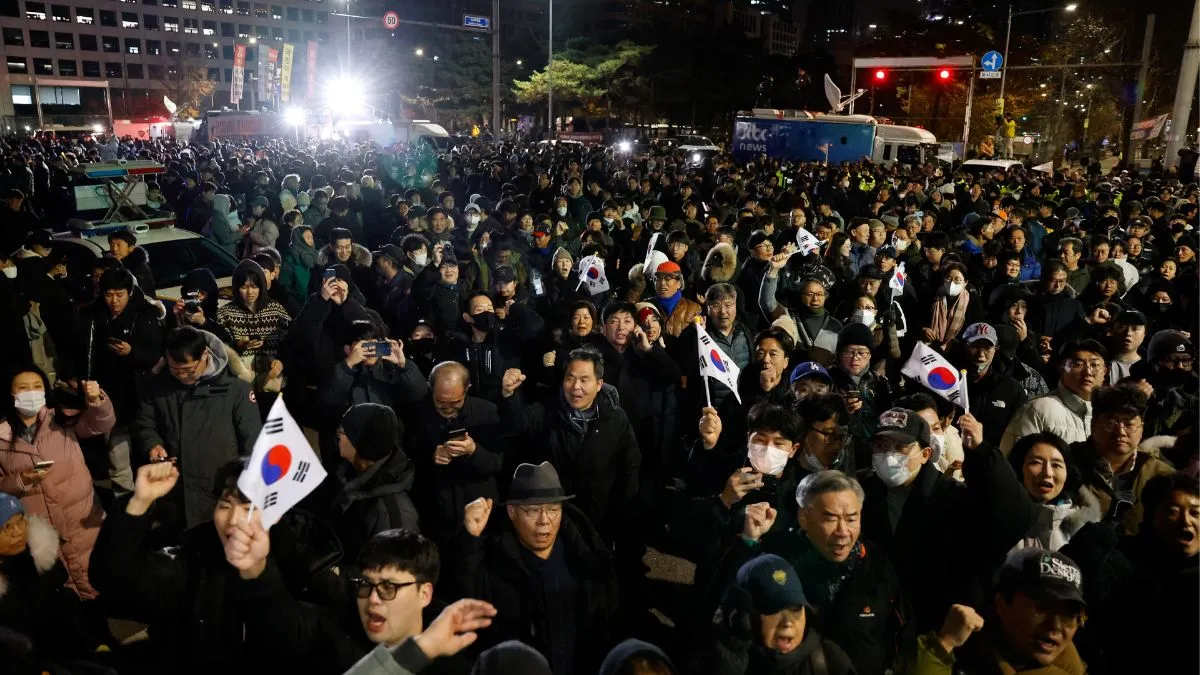- By Aashish Vashistha
- Wed, 04 Dec 2024 07:55 AM (IST)
- Source:JND
South Korea experienced a major political upheaval on Tuesday night as the National Assembly swiftly overturned President Yoon Suk Yeol's declaration of martial law. The move had ignited widespread outrage and protests nationwide. In an emergency session, 190 out of 300 lawmakers, from both the ruling and opposition parties, unanimously voted to reject the martial law, nullifying it just hours after Yoon had announced the contentious law.
Yoon's unexpected move to implement South Korea's first martial law in more than 40 years took the nation into its most intense political crisis, leaving its international allies stunned.
The United States, which reportedly stations nearly 30,000 troops in South Korea to safeguard the country from the nuclear-capable North, initially expressed significant concern over the declaration, followed by relief upon the lifting of martial law.
"We welcome President Yoon's statement that he would rescind the order declaring emergency martial law," US Secretary of State Antony Blinken said.
"We continue to expect political disagreements to be resolved peacefully and in accordance with the rule of law," he further added.
What Is Martial Law?
Martial law is a state of emergency in which military authorities are given control over normal civilian functions, often replacing civil law with military regulations. It is typically declared during times of war, armed conflict, or a national crisis.
Under martial law, the military is empowered to enforce laws, maintain order, and make decisions usually reserved for civilian authorities. This may include curfews, restrictions on movement, and the suspension of certain rights.
In South Korea, Article 77 of the constitution allows the president to proclaim martial law when needed to address military necessities or maintain public safety during emergencies.
Why Did South Korean President Impose Martial Law?
South Korean President Yoon Suk Yeol imposed martial law, citing the need to safeguard the country's liberal democracy from "anti-state forces" and address the "threats posed by North Korea."
Although he provided few details or evidence to support these claims, his decision comes as a long-standing belief that a hard-line stance against North Korea is essential to prevent the regime from acting on its nuclear threats against Seoul.
